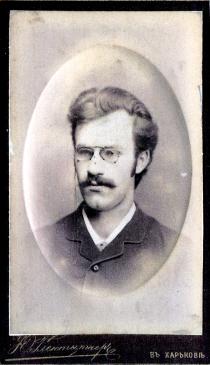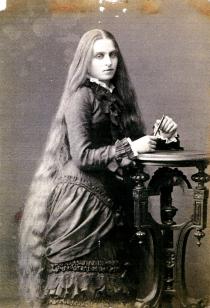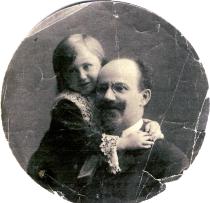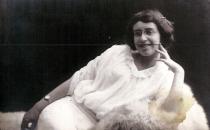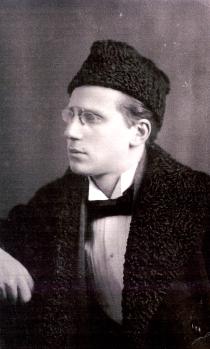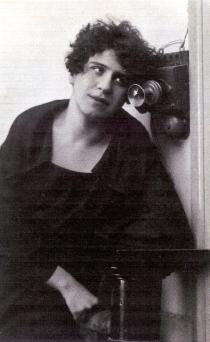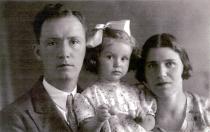My grandmother Raissa Zilberberg [nee Umanskaya] when she was 18 years old. The photo was taken in Moscow in 1883. My grandmother was said to be the most beautiful woman in Kharkov.
My grandmother was born in Nikolaev, a regional town, in 1865. She came from a rich assimilated family. Their family also had the right to live in Nikolaev [outside the Pale of Settlement]. Her father must have been a merchant of Guild I or a doctor. Many talented people that contributed to the Russian Empire - and later to the Soviet Union - came from such families.
The Umanskiys and the Zilberbergs identified themselves as Jews and were proud of it. I believe my grandmother and grandfather had a Jewish wedding - otherwise their marriage wouldn't have become valid - but later didn't observe any traditions. They were in those circles of society where nationality didn't matter. They named their children to their liking and didn't care about naming them in honor of their deceased relatives or giving them traditional Jewish names.
My grandparents had six children. All my grandmother's children lived with her, and she was the mistress of the house. Each member of the family had a room of his own. Their apartment was richly furnished, and there were very expensive dishes and table sets in the cupboards.
My grandmother cooked a dinner of three or four courses every day. At weekends we had little pies stuffed with rice. They were supposed to be cut in order to be able to put a slice of sturgeon inside before eating them. She also cooked meat with white sauce at weekends - this was traditional Jewish food. She didn't share her recipes with anybody. The whole family sat at the table together. Everybody had a silver ring with the initials of the owner on it and a snow-white starched napkin pulled through it. There was always a clean tablecloth on the table, and soup was served in a soup bowl. My grandmother was trying to keep the pre-revolutionary traditions of the family intact.
So, she was a housewife at home. But when she heard about a first night at the theater, or a theater group on tour in town, she ordered tickets to be brought home. A cab driver came to the house; she left the house with a lorgnette, in a heel-long gown, and waved at us. Grandmother often went to the theater. And I always saw her with a book. She was complaining that she had read all books in the house. She didn't like the latest publications [from 1920], in which some old letters of the Russian alphabet were replaced with new ones. They were creating a new life and a new society and found it necessary to introduce new things. It was a distorted language to her. She didn't acknowledge the Soviet power. She said it was illegal power of usurpers. She was sarcastic about Lenin. She once said, 'Did it ever occur to him where his ideas would lead?'
There were no signs of religiosity in the interior of the house - it was the standard home of a rich European man not a Jew. What I mean by that is that they didn't have special dishes for Pesach, silver chanukkiyah, religious literature, mezuzah on the door or any other general accessories of the Jewish way of life.
My grandmother was shot by the Germans in Kharkov in 1941.


